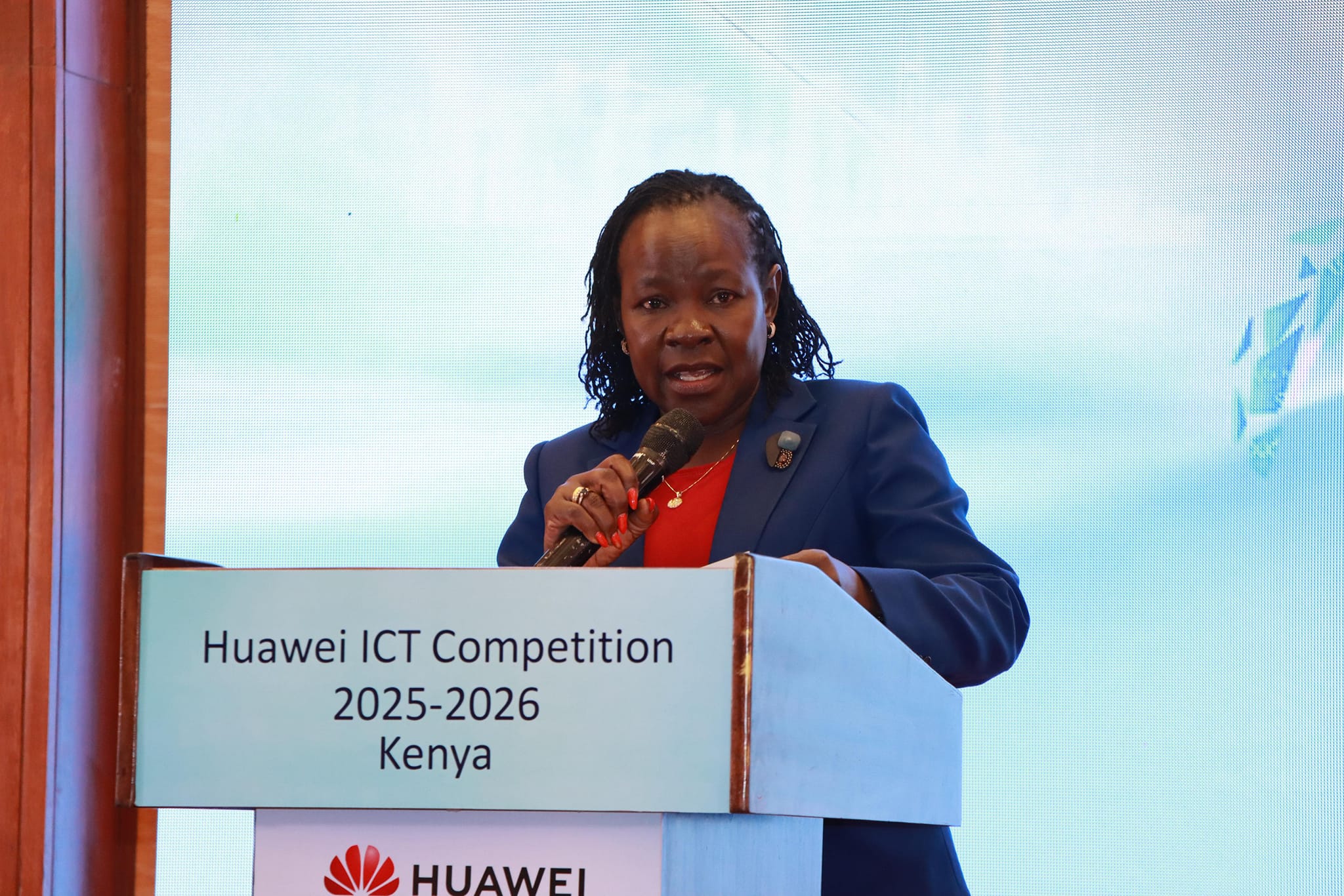The government is set to revolutionize assessment in Technical and Vocational Education and Training (TVET) institutions by introducing Artificial Intelligence (AI) in the design, administration and marking of examinations.
Speaking at the launch of the Huawei-sponsored ICT skills competition on August 14, Principal Secretary for TVET Dr Esther Muoria said AI examination centres are already being set up across the country. She said the technology will enhance efficiency, credibility and alignment with industry needs.
The new system will allow the Kenya School of TVET to generate examinations, marking schemes and results in a single day.
“We feed our occupational standards and curricula into the system, and AI crafts the examinations and marking schemes, and then produces results immediately. This will significantly modernize our assessment processes,” Dr Muoria said.
She added that the initiative is part of a wider government drive to integrate technology into skills training and testing, while bridging the gap between graduate competencies and labour market demands. A total of 150 TVET institutions are being equipped as AI centres of excellence in collaboration with Huawei, with trainers at the Kenya School of TVET already trained on the technology and expected to pass on the skills to institutions nationwide.
ALSO READ:
The AI initiative is tied to a three-year Memorandum of Understanding (MoU) between the government and Huawei running from 2025 to 2028. The agreement aims to set up 150 ICT academies within TVET institutions, prioritizing underserved regions. It also seeks to certify at least 1,000 students annually at the Huawei Certified ICT Associate level and train 150 instructors under a ‘Train-the-Trainer’ model. The partnership focuses on high-demand skills such as cloud computing, artificial intelligence, cyber security and networking.
Parliament has also backed the initiative, with National Assembly Speaker Moses Wetang’ula terming it a vital enabler for Kenya’s youth to compete and innovate on the international stage.
The integration of AI into examinations is expected to reduce turnaround times, improve the reliability of results and align training outcomes with the needs of a fast changing job market.
By Benedict Aoya
You can also follow our social media pages on Twitter: Education News KE and Facebook: Education News Newspaper for timely updates.
>>> Click here to stay up-to-date with trending regional stories
>>> Click here to read more informed opinions on the country’s education landscape






